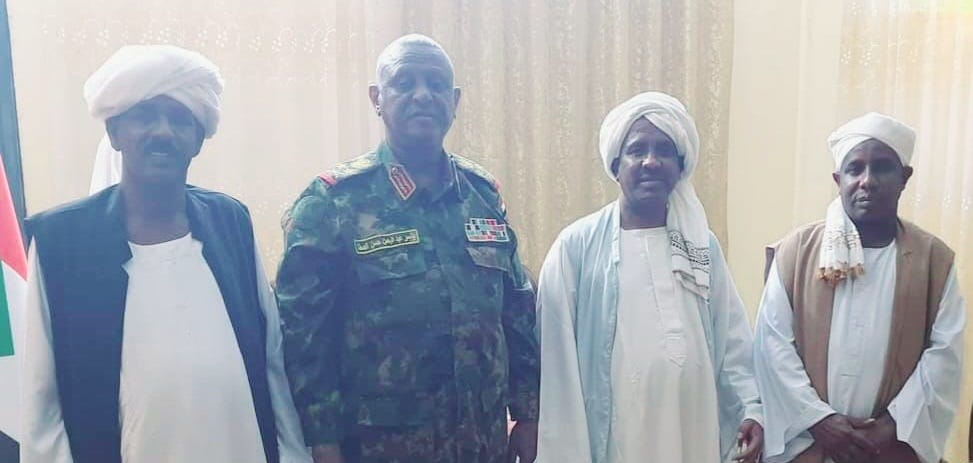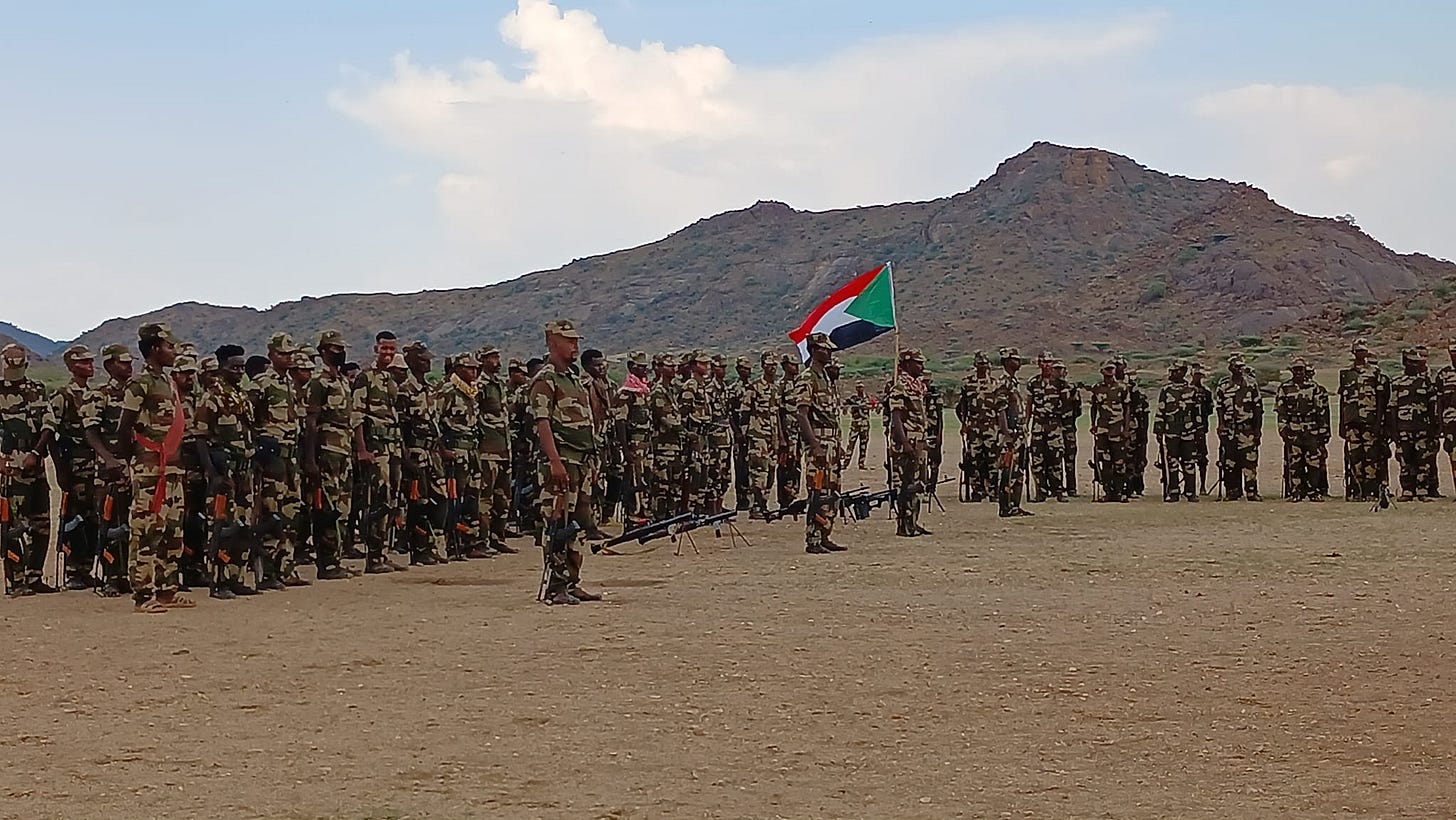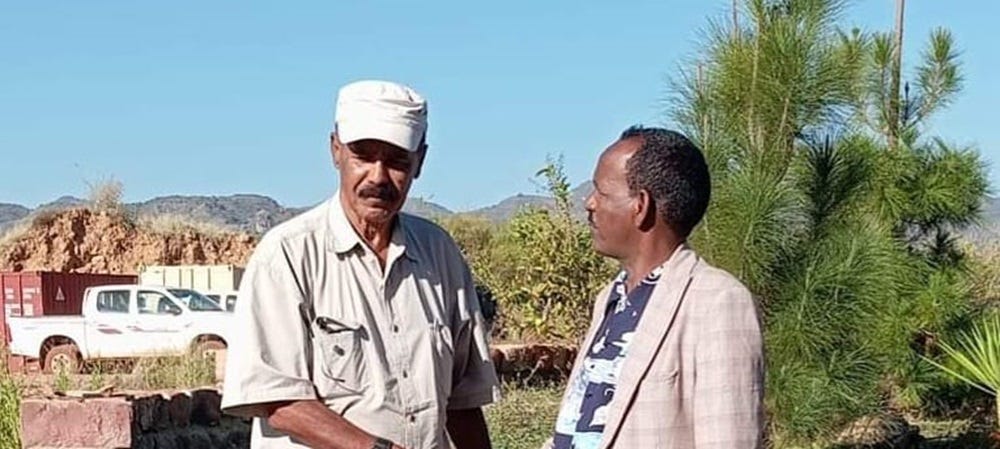Eritrea-backed militias deploy in eastern Sudan
Growing militarization and security tensions in Kassala State
The Eastern Sudan region is awash with mounting anxieties over insecurity following the deployment of two Eritrea-backed militia groups across rural and some urban areas of Kassala State, Sudan’s easternmost state.
The groups are aligned with Sudan's military, the Sudanese Armed Forces (SAF), which is desperate for allies in its war against the paramilitary Rapid Support Forces (RSF), a former ally that rebelled in April 2023. However, the groups have their own political interests and agenda, and direct ties with the Eritrean regime.
Kassala State, which borders both Eritrea and Ethiopia, has remained relatively unaffected by the ongoing conflict witnessed in other parts of Sudan. However, the region has experienced an influx of internally displaced persons from western and central Sudan, as well as refugees, primarily Eritreans and Ethiopian Tigrayans. One of the largest refugee camps in Sudan, El Shagarab, is situated near the state capital.
The Eastern Corps, the military wing of the United Popular Front for Liberation and Justice (UPFLJ) led by Amin Daoud Mahmoud, announced its deployment on October 28th in a statement signed by its spokesman Mohamed Adam Hamid:
“Your courageous forces, the heroes of the Eastern Corps led by General Amin Daoud Mahmoud, the initiator of the civil and political rights revolution in eastern Sudan, are deploying and advancing toward the eastern region following technical and military consultations with the Armed Forces. This move aligns with the Eastern Corps' strategy to protect land and honor in coordination with the national security apparatus. We note the popular support and satisfaction that your forces have received from our resilient people.”
The statement added that their troops were “awaiting instructions from the leadership” for potential participation in the ongoing conflict against the RSF.
The Eastern Corps' deployment follows the unannounced arrival of National Movement for Justice and Development (NMJD) forces in eastern Sudan's rural areas. The NMJD is led by Mohammed Tahir Suleiman Betai, son of prominent local tribal leader Al-Sheikh Suleiman Betay, and a member of the dissolved National Congress Party (NCP), the Islamist faction led by former President Omar al-Bashir who was ousted in popular uprising in April 2019.
According to a security official aligned with the group, Tahir met his father along the Sudanese-Eritrean border in the Lukweib area during the early hours of June 26th, before deploying later that day. They were reportedly coming from Eritrea, where they received military training and established their group.
Historically, Eastern Sudan is home to a handful of armed groups that were active during the 1983-2005 Second Sudanese Civil war, sometimes operating alongside the Sudan People’s Liberation Movement/Army (SPLM/A), the better known and larger rebel group that eventually became the ruling party of South Sudan.
Eastern Sudan's economic situation largely mirrors that of other Sudanese peripheral regions. Throughout Sudan's previous civil wars, the SPLM found support among eastern Sudanese communities, due to shared economic and political grievances between eastern residents and Southern Sudanese.
Following the SPLM/A’s peace agreement with the Sudanese government in 2005 and the secession of South Sudan in 2011, the eastern Sudanese opposition groups lacked the necessary resources and support to sustain an insurgency.
Subsequently, they entered into an uneasy rapprochement with the government, dissolved, went dormant, or went into exile—until now. Their redeployment in eastern Sudan has heightened political tensions among competing local groups.
Further complicating the situation, several Western Sudanese armed groups now have forces stationed in the Eastern region, namely, SLM-Minawi, SLM-Tambour, and JEM. These groups, which originated in Darfur as rebels, now have training camps in eastern Sudan supported by the Sudanese military, which considers them essential proxy forces in its war against the RSF.
This complex situation has raised concerns that East Sudan eventually could come to resemble war-torn western Sudan, becoming a landscape riddled with armed groups.
On November 1st, Sudan Tribune reported that the head of the High Council of Beja Nazirs and Independent Chieftains, Sayed Ali Abu Amina Turk, condemned the Eastern Corps' deployment in eastern Sudan. He views this as a declaration of war against the Beja tribe perpetrated by what he termed “Eritrean opposition groups.”
Abu Amina expressed deep concern over the potential for heightened tensions and instability in the region. He accuses the Eastern Corps of being a foreign force comprised of individuals with alleged ties to Eritrean opposition groups. He claims these individuals were naturalized under the former al-Bashir regime and illegally granted citizenship.
The Beja leader specifically targeted Amin Daoud Mahmoud, the Eastern Corps' commander, accusing him of being a fugitive wanted for murder and incitement within the Beja community. Abu Amina warned that the deployment of the Eastern Corps, armed and mobilized in Eritrea, poses a significant threat to the security and stability of eastern Sudan.
“The deployment of the Eastern Cohort forces in our lands is a declaration of war between the Beja and the remnants of what I describe as the Eritrean opposition. Now that he has been armed and mobilized in Eritrea and sent to Beja land under the cover of the joint forces, this will blow up the situation and strike the east,” he said.
Meanwhile, a local youth group, the Free Sons of Kassala Forum, voiced a strong stance against the presence of armed groups and the militarization of civilians in the region, actions which they attribute to the de facto government in Port Sudan. They warned that the government’s approach to arming citizens in eastern Sudan poses significant risks, potentially sowing the seeds for escalating unrest and conflict. The group expressed concern that the mobilization of militias and the distribution of weapons within local communities could destabilize the region’s security, undermining efforts to maintain peace in historically stable areas of the East.
Highlighting the dangers of a militarized civilian population, the forum expressed regret that the government’s actions could encourage divisions among communities, turning peaceful regions into areas of ethnic and tribal strife. The organization further cautioned that allowing tribes to arm themselves would only fuel rivalries among local groups, threatening to turn eastern Sudan into a landscape of tribal warfare.
“We, along with other observers of the Sudanese conflict, have witnessed the mobilization and militarization of citizens by the de facto government in Port Sudan. We, the Free Sons of Kassala Forum, strongly reject the arming of civilians by the army in eastern Sudan and regret the alarming deterioration of our country, where militias now hold sway over areas that remain safe from conflict. Sudan’s past experiences with militias have proven them to be the primary cause of fueling wars and dismantling our social fabric. The reckless policy of arming and supporting militias in eastern Sudan will undoubtedly incite division and conflicts among the eastern communities, where each tribe may be compelled to form its own militia, threatening to turn eastern Sudan into a battleground for tribal warfare,” the group stated, emphasizing that Sudan’s history with militias has shown how these groups can ignite conflicts and erode social unity.”
The Free Sons of Kassala Forum also issued a warning to neighboring Eritrea and Egypt, urging them not to exploit Sudan’s current security situation to influence the country’s internal affairs. They called on the military leadership to immediately halt the militarization activities in the East and act decisively to prevent further instability. If the situation remains unaddressed, the group vowed to take measures to protect their land and preserve social harmony.
“We strongly warn against the continued spread of the Eastern Corps militias in our regions, which have been and continue to be safe, and affirm that the free people of the East will not stand idly by in the face of these threats. We will take clear and firm action against anyone who seeks to destabilize the security and stability of our communities,” they said.

The leader of the Eastern Corps visited the SAF Omdurman in late September, just a month ahead of their deployment in Kassala State. The group said at the time that the visit by the military leadership of the Eastern Corps was “driven by our belief in the necessity for Eastern military and political factions to contribute alongside the Sudanese Armed Forces in achieving victory and restoring security and stability to our country.”
According to security sources with direct knowledge of the Eastern Corps’ activities, the group was trained in Eritrea. The UPFLJ formed what is now its military wing in mid-June 2023, just two months following the outbreak of war between the RSF and the SAF in the capital region.
Amin has not lived much in Sudan following the 2020 peace agreement, compared to Eritrea. His group’s formation dates back to the early 2000s. In late 2019, he joined the Sudanese Revolutionary Front (SRF) led by Darfur rebel leader Al Hadi Idriss. He participated in the peace talks in Juba but didn’t sign the final Juba Peace Agreement after he was kicked out in May 2020, five months before the signing of the agreement. He disappeared and went to Eritrea until the outbreak of the 2023 war.
Last week, he met with Eritrean President Isaias Afwerki to discuss the ongoing conflict in Sudan. According to a statement issued following the meeting by Amin’s group, the meeting focused on the “destabilizing impact of the foreign forces in Sudan,” which in this context is considered the RSF.
Eritrea, under the leadership of Isaias, a 33-year dictator, has been a vocal critic of the RSF and has expressed support for the “Sudanese state.” This support is significant to the SAF, as Eritrea is one of the few neighboring countries that support the SAF after Egypt.
In a statement November 10, Amin Daoud’s group said,
“…the leadership of the United People’s Front for Liberation and Justice met today, Sunday, November 10, 2024, in the Eritrean capital, Asmara, with His Excellency President Isaias Afwerki. The meeting deeply discussed the challenges facing our country and people. We expressed our deep appreciation for the State of Eritrea, its government, and its people. The historical and social ties between the two peoples confirm the authenticity of Sudanese-Eritrean relations.”
“Thus, we reassure the Sudanese people and all the people of eastern Sudan that the climate is now conducive to restoring the Sudanese state according to a national project that enhances national unity and equal citizenship among all the sons of one homeland.”
“We note that the meeting touched upon the commonalities and principles that we agreed upon with His Excellency President Isaias Afwerki, which relate to building a national project that safeguards the sovereignty of the state and the region from any negative interference that undermines political and social stability.”
“In this context, the President was reassured of the position of the factions in eastern Sudan and their readiness to participate and confront to protect Sudan and the region from all foreign ambitions. We renew our full confidence in the State of Eritrea, its government, and its people in their sincere stance with the Sudanese people.”
Videos
In the video below, Eastern Corps members are seen training at an undisclosed location in the eastern part of Kassala state, Sudan.
In the video below, Eastern Corps’ commander and head of its political wing, Amin Daoud, addresses forces at the “Gash Two” training camp in Kassala State. The Gash camp is situated southwest of the state capital, Kassala, along the Gash River.
In the video below, Eastern Corps’ “Special Mission Force” is shown at a former SAF military base in Kassala.
Support our journalism
Thank you for reading Sudan War Monitor. We do this work because we believe that journalism is one accountability mechanism that ultimately can contribute toward peace and justice in Sudan—however distant that hope may be. Our work is intended to be a resource for humanitarians, civil society, ordinary Sudanese, diplomats, and news media. Subscribe or share to support our work and help “Keep Eyes on Sudan.”




